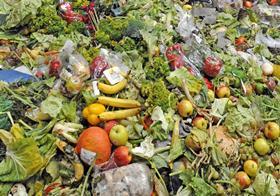
Henri Rensy, founder of Ecole des Marchés de Lille Métropole and an expert on the French retail sector, has raised doubts about France’s new law to reduce waste, warning that it antagonises some parts of the industry while completely ignoring the principal cause.
“The new deal is not going to be to everyone’s liking,” he told eurofruit. “Retailers may well demand that fruit is picked less ripe than before, at a greener stage in its development, in order to increase the shelf life of the product.”
This, he says, will make fruit more deceptive to consumers, and at a time when trust in food is at a low. “This could be a problem for fruit, as well as for vegetables like tomatoes,” said Rensy. “It will make such products less tasty on the whole and therefore more disappointing to consumers, which can harm repeat sales.”
Approximately 7.1m tonnes of food is believed to be thrown away in France every year. However, the source of such waste is also a crucial factor, according to Rensy. While restaurants are responsible for an estimated 67 per cent of waste and shops 11 per cent, consumers are thought to account for a staggering 67 per cent.
“We must not forget that the household is the number one cause of waste,” he said. “This is a major problem that will not be resolved by the new law.”
Rensy recommends a back-to-basics approach. “I think it’s important that people re-learn the basics of how to prepare fruit and vegetables,” he said, “and to know how to use what’s left over. We also need to adapt products to the size of households, especially vegetables like cabbage, cauliflower, celeriac and broccoli, and sell ripe products that are edible in the next couple of days to avoid them going bad and being thrown out.”
The growth of online sales will help in lowering waste, adds Rensy, but perhaps only at the retailer level. “At the same time, online sales do not encourage impulse buys, especially when it comes to fruit and vegetables,” he said. “This will therefore move more of the waste further upstream.'



